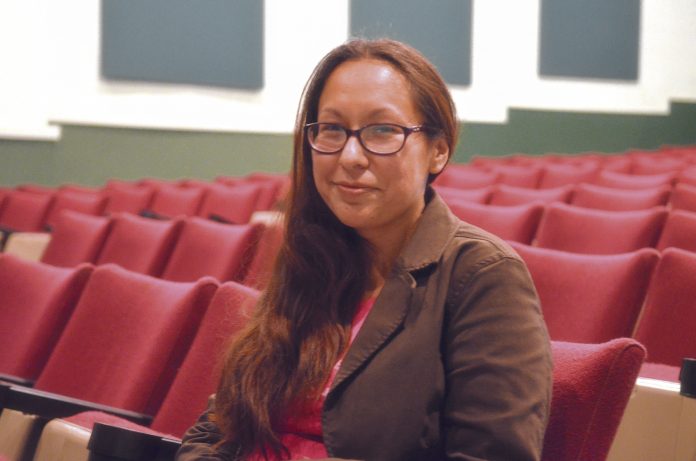
Growing up in La Ronge, Janine Windolph knew she wanted to be a filmmaker.
She was told she only had three options: become a cop, a teacher or a miner.
“I really felt my world was quite limited. I put that dream aside and thought that was never going to happen,” she said.
She went to the University of Regina for business, and they had a film class. She took it as an elective.
Now, she has degrees in fine arts and media production, she’s an adjunct curator at the MacKenzie Art Gallery, successful documentarian and, as of last year, feature film director.
Her feature film directorial debut, Land of Rock and Gold, has been screened at home and abroad, in Ottawa, Montreal and New Zealand. Saturday, it was a smaller, but almost more important, screening. The film was one of many shown in Waskesiu as a part of the inaugural Celebrating Indigenous Film Festival.
The film, set in La Ronge, tells the story of the journey of a mother and son after the mysterious disappearance of the woman’s boyfriend, the son’s father. It was co-directed and co-written by Daniel Redenbach.
The story carries a lot of parallels to Windolph’s life, and that of her mother. It also draws from her culture, and from tales of storytellers heard around the fire.
“I’ve never actually lost my partner from being missing, but I broke up with my kids’ father, and I really had to learn who I was after,” Windolph said.
“That was acrually something that inspired this film. You really start to find out who you are as a single mom, and in that process you kind of break down who you were and build who you are now. I definitely went through that journey.”
She also talked about how the film paralleled her journey of reconnecting with her father. The main character reconnects with hunting and trapping. Windolph’s dad is a hunter/trapper, and she used to not see him very often. Recently, they’ve been reconnecting, just as her character was with those skills.
The story also resonates with the culture that inspired it. Windolph screened the film in La Ronge, to a receptive crowd.
“I think everyone connected to the land, different moments, and they all had stories in response.”
Those stories were the best part for Windolph. She said several people came up to her and said particular scenes and themes reminded them of their life, and their journey.
While it’s important for Windolph to tell those stories, being able to bring them back is also vital.
“It’s very important not only to share stories of the north, but to bring the stories back to the north. I think that’s always been why storytelling has been problematic. When people come to the communities and leave, they don’t often bring it back,” she said.
“To have an opportunity is exactly what the film needed. (Waskesiu) is pretty close to home, and it’s a brand new audience. We’re quite happy to have the opportunity to screen here.”
Being able to show and share stories of a community is what the film festival was about. It’s part of a concerted effort by the Friends of the Park and the national park itself to bring in more Indigenous stories and culture.
“It’s a really great opportunity to have this festival here,” said park superintendent David Britton, who stopped by to view Windolph’s film. “(The film) was excellent. I really enjoyed it. I thought it was well made and dealt with some really important themes. The friends of the park are really the drivers of this event, but we’re always happy to have these kind of things in Waskesiu.”
Windolph was also impressed by the film festival. She had a chance to take in some of the other films, including submissions by area youth. She spoke to the importance of having new and experienced filmmakers coming together.
“Having access to filmmakers at different levels helps strengthen your own storytelling,” she said. “Emerging storytellers do things in a new way. You often see that inspire experienced filmmakers, while experienced filmmakers have a way at looking at stories that can be shared as well. It’s important to come together and exchange our stories.”
The festival organizers were pleased with how the festival went.
“The reception has been really great,” said spokesperson Andréa Ledding. “I think the response has been amazing. The people who have come out have been so happy to see these films. There is a lot to build on.”
A large youth contingent came out to see the films, brought in from La Ronge and from a media school in Regina. Some of those students got the chance to screen their own works.
“They were really pumped to be able to see their movies on the big screen and be able to talk about them. The audience was really supportive, asking questions about filmmaking,” Ledding said. That’s a good sign for the future of the festival, and for the future of film.
“That’s what we want to see, passing it on to future generations and inspiring everyone.”

